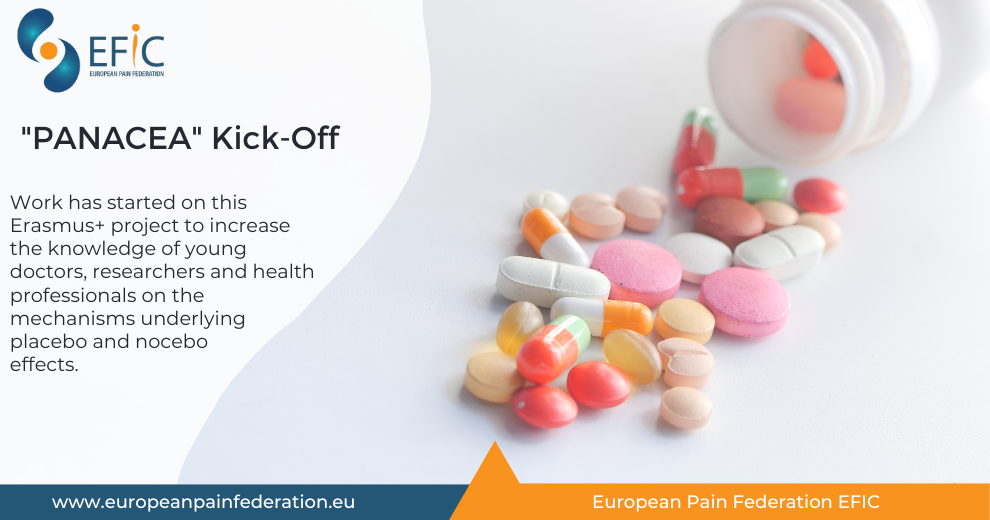Earlier this year, EFIC Research Projects Advisor Mary O’Keeffe attended the kick-off meeting for “PANACEA: Special Needs by Placebo: Programme to Advise, Normalize And Control its European Administration” in Madrid, where the project structure and plan were discussed along with the dissemination plan.
The new Erasmus+ PANACEA project led by the University of Bologna aims to increase the knowledge of young doctors, researchers and health professionals on the mechanisms underlying placebo and nocebo effects, and thus provide indications and evidence for their use in clinical practice. During their training, students and specializing doctors usually approach placebo effects as a control measure but are not taught about the importance of recognising and mitigating nocebo effects. Therefore, in order to achieve better therapeutic outcomes, a better knowledge of placebo/nocebo effects must be developed based on scientific evidence.
The goals of the partnership are:
1) to provide shared European guidelines for the optimal use of placebo effects and for identifying and mitigating nocebo effects in clinical practice;
2) to create a syllabus of a course on placebo/nocebo effect that is applicable in medical education in Europe.
This innovative learning pathway aims at offering unique opportunities in the clinical setting:
1) to provide information and feedback on placebo/nocebo effects in clinical practice
2) to promote empirical, conceptual and ethical understanding of the placebo/nocebo effect among future physicians, academic researchers and healthcare professionals.
How is EFIC involved in the project?
EFIC will be responsible for 1. collecting information from clinical practice experience, 2. organizing a symposium where experts can share their expertise and opinions about the management of placebo and nocebo effect in clinical practice, and 3. supervising the planning of the main dissemination events.
Find out more about the project here.
